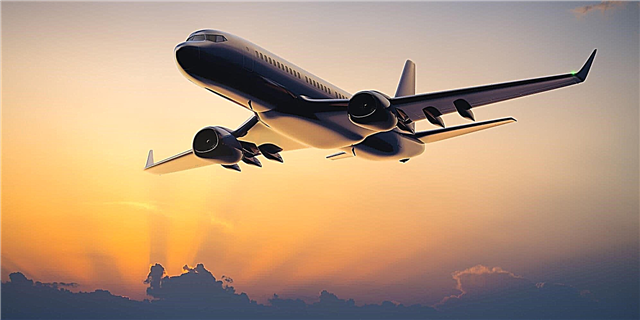
One of the most common and interesting questions before issuing flight documents: “Is it possible to use a mobile phone during its flight for its intended purpose - to make calls and“ walk on the Internet? ”.
The answers to this question, sounding from different sources, are diametrically opposite in meaning, and it is quite difficult to understand them in the search for truth to an ignorant person. In any case, the ban on the use of telephones in flight, introduced many years ago by an absolute majority of airlines in the world, continues to apply.
Reasons for banning the use of phones on the plane
The most common answer, replicated for many years, is the creation of radio interference by smartphones. Allegedly, they interfere with the operation of electronic systems, which modern passenger airliners are stuffed to the eyeballs. But the most curious ones have a reasonable question: where is the mobile network at an altitude of 10 km? It’s still impossible to make a call.
To begin with, the prohibitions state that it is impossible to use a mobile device for its intended purpose. That is, you can take it with you in flight, but you can’t turn it on. Airlines in advance warn passengers about the consequences of such violations:
- failures in the operation of aeronautical equipment;
- violation of the functioning of the aircraft communications in flight;
- the possibility of potentially dangerous situations due to interference caused by pilots in the process of controlling the aircraft. Naturally, in the event of emergency situations, such actions of passengers are almost always considered as one of the versions.
However, subsequently, manufacturers of airliners conducted serious research, the result of which was the exact opposite statement. That is, the included mobile phones do not directly affect the operation of aircraft systems and components. Since 2013, the world's leading air carriers began to cancel, or significantly reduce previously introduced bans. Still, categorically you can’t turn on smartphones during takeoff and landing. But in horizontal flight, their use becomes available to passengers.
Another argument about the dangers of smartphones was the myth that with their help it is possible to coordinate the actions of criminal groups whose purpose is to seize aircraft. This statement is difficult to dispute. And even harder is to prove that this has never happened. The other is indisputable. If there is a suicide bomber on the plane whose purpose is to set off an explosive device, the easiest way to do this is with a mobile phone.
Perhaps, for security reasons, most Russian airlines retain a partial ban on the use of smartphones and other digital devices during flights. It is senseless and even dangerous to ignore the requirements of air carriers.Security officers have the right to detain any of the passengers whose actions they think are unlawful and aggressive in terms of ensuring flight safety.
What is useful smartphone in flight
Digital technology is stepping forward. Today, passengers who are allowed to use mobile devices on board the airliner even have the ability to make calls using digital satellite networks. But these services are not cheap, so they are not in great demand. It is much more convenient to communicate via the Internet using Wi-Fi. Much more passengers are concerned about the issue of recharging mobile devices on board airliners. The higher the class of the aircraft, the more likely the presence of such a service during the flight.
If the flight is in economy class, then taking care of solving the issue of recharging a mobile device is in advance. For most passengers, this service may not be available. For those who fly in business class, the question does not exist. In almost all aircraft, the seats in these cabins are equipped with separate sockets for communicating mobile devices.
The opinion of most pilots is that the ban (full or partial) should not be lifted. After all, any emergency connected with a smartphone will force the dispatcher to command the pilot to urgently fly the plane to land. The consequences of such a situation can be unpredictable. And judging by the fact that there is still no unity among air carriers on this issue, a universal solution to the problem has not yet been found.












